11-0099 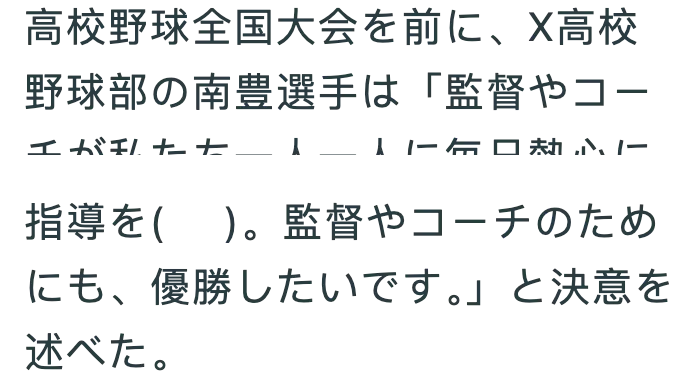

11-0099 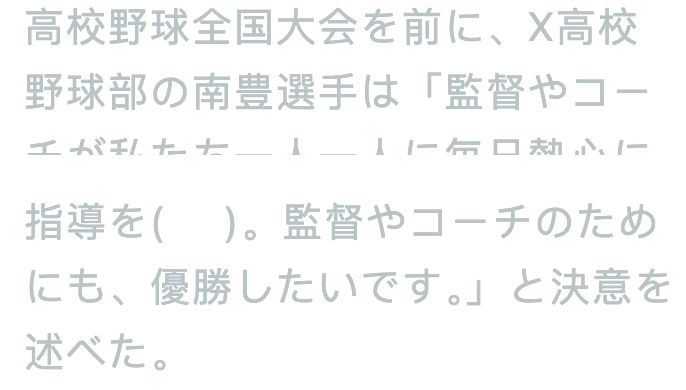

- On the eve of the High School Baseball National Competition, Nanfeng players from X High School's baseball department expressed their determination: The leaders and coaches have been enthusiastically coaching each of us every day, so I want to win for their sake as well.
- してくださいました:A respectful expression of "してくれる", indicating that the other person did something for me.
- いらっしゃいました:"いる", "いく", "くる", respect verbs.
- まいりました: A self-effacing verb of "くる".
- していただきました:A self-effacing expression of "してもらう", indicating that you have asked the other person to do something.
12-0100 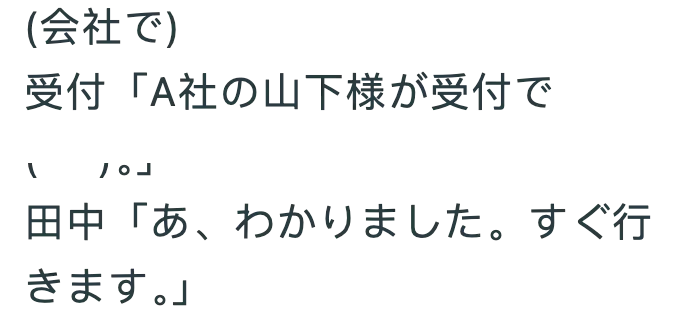

12-0100 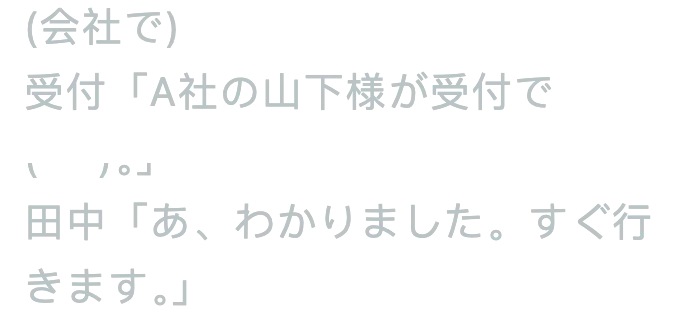

- (in company)
- Reception: Mr. Yamashita from Company A is waiting for you at the front desk.
- Tanaka: Okay, I'll be right there.
- お持ちです:(The other person) is waiting. Honorifics for "待っている".
- 待っております:I will wait for you. The self-effacing phrase "待っている" cannot be used for customers
- O待ちください:Please wait. The honorific "持ってください" asks the listener to wait for himself/herself.
- 待っていただけますか:Can you wait a little? Self-effacing phrase of "待ってもらえる", to ask the listener to wait for oneself
13-0101 

13-0101 

- When we arrived at the hostel, the staff greeted us with smiles: welcome to us.
- お越しくださいました:来。 「越す」is the honorific of 「来る」.
- お伺いました :「伺います「行きます」「來ます」「聞きます」's self-effacement.
- お呼びいただきました: "呼びます" to shout, to call.
- お迎えしました 迎える:接,迎接。 It is a self-effacing sentence pattern.
14-0102 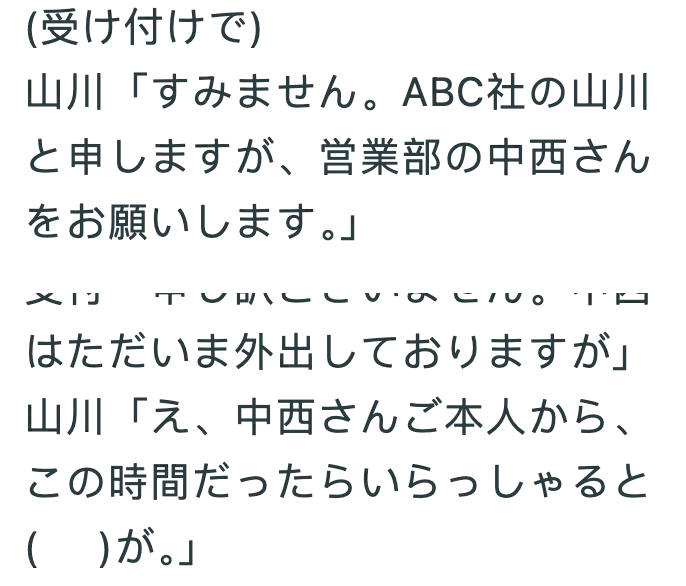

14-0102 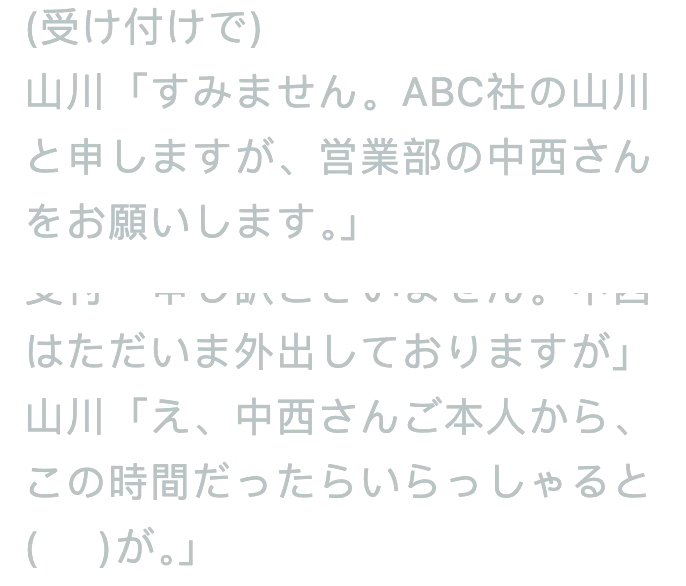

- (Reception) YAMAGAWA: Excuse me, I'm Yamagawa from the ABC Agency. I'm looking for Nakanishi in the sales department.
- Reception: I'm sorry, Nakanishi was just out.
- Yamakawa: Hey, I heard from Nakanishi himself that he's in at this time of day.
- お聞きになったんです:お~になります for honorifics.
- 申し上げたんです:Self-absorbing phrase for saying "言います".
- ご存じなんです:ご+です。 It is a honorific expression. It means you know.
- (伺ったんです: Serving います is the self-effacing form of 行きます、來ます、聞きます, and this one is entitled "聞きます".
15-0133 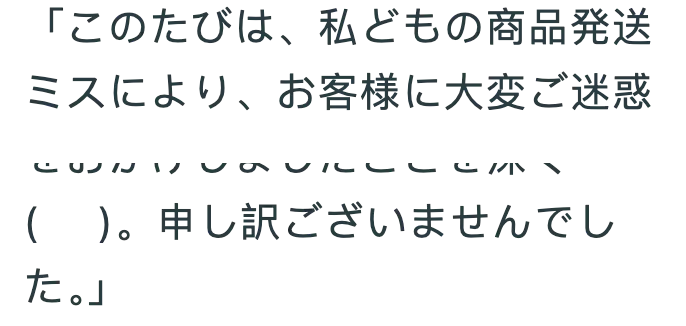

15-0133 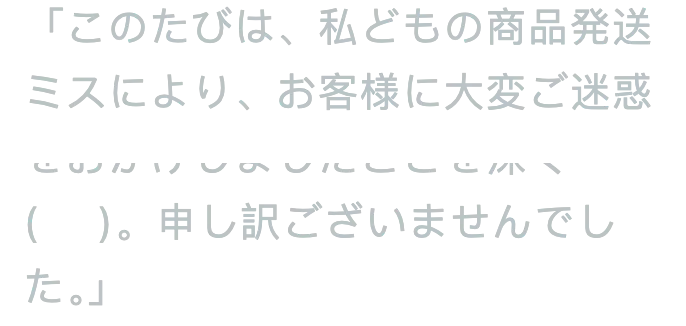

- This time, we have sent you the wrong product, so we apologize for causing you a lot of trouble. We are very sorry.
- お+申し上げます:表表自谦
- お+いただきます:Used when asking for help or accepting an action from another person to indicate please ...... Thanks for your (help) ......
- ていただきます:Used when the one who receives a favor expresses gratitude, indicating that (I) asked someone to do something for me.
- ていらっしゃいます:「いらっしゃる」表尊敬










